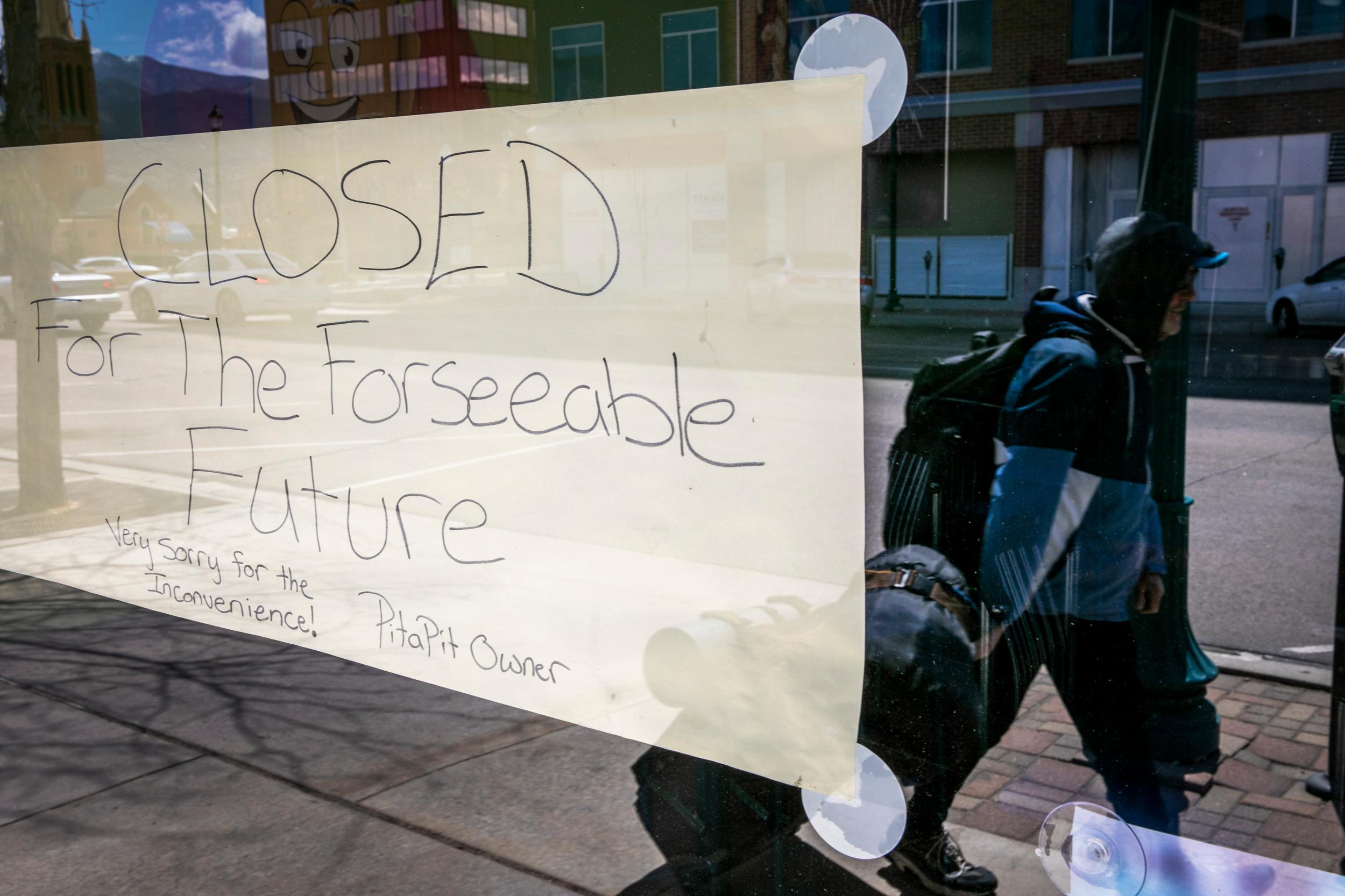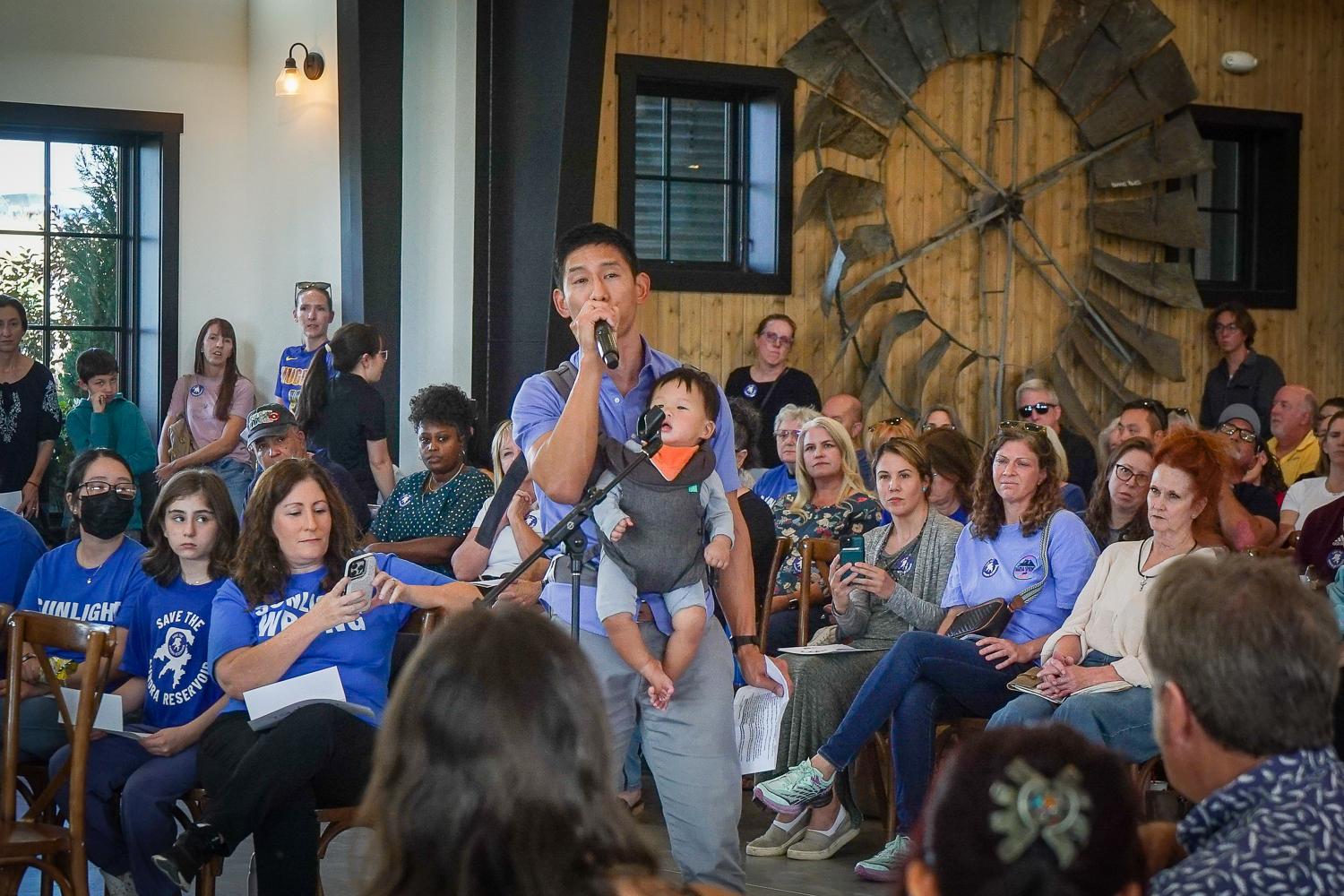
Call it CARES 2.0, Phase 4 or Phase 5, but by any name, congressional leaders and the White House are negotiating the next — and most likely last — big coronavirus relief package before the November election.
House Democrats passed a $3 trillion dollar relief package, the Heroes Act, months ago. Republicans are putting the final touches on a $1 trillion package. The final bill will land somewhere in between and that means some people will be left out.
Priorities have been staked out on all sides, including by members of the Colorado delegation.
Republican Sen. Cory Gardner says he’s focused on three things: “Making sure we address the pandemic itself, flattening the curve and stopping the spread; helping individuals in need and that includes unemployment that includes getting back to work; and the third thing, of course, is keeping businesses door’s open and getting through that together.”
He supports getting more money into the Paycheck Protection Program and letting small businesses borrow again from it. As for the added unemployment insurance benefits that expire this month, Gardner thinks they should be extended in some form. “What it looks like, I think, there’s going to be a negotiation. But the American people need help, let’s help them.”
That benefit though is one of the big points up for debate.
Democratic Rep. Diana DeGette would like to see the extra $600 a week continue at its current level into next year. Democratic Sen. Michael Bennet thinks the benefit should be tied to the unemployment rate tapering off as that rate goes down so that it “supports people” but “doesn't create a competitive problem with wages and jobs.”
On the Republican side, Rep. Ken Buck isn’t on board with continuing the $600. He thinks it should be capped at 100 percent of a worker’s previous salary. The White House has proposed going even lower, limiting the benefit to 70 percent of previous wages.
Bennet, who spent part of the past recess traveling around the Western Slope, said what he heard from Coloradans has helped shape his priorities. Those include the creation of a “health force” to assist with testing and tracing and longer-term help for businesses through his RESTART bill. These programs could also be expensive.
Still, Bennet argued, it’s cheaper than having the economy shut down again. “The real question is, can we open and can we open in a way that allows us to stay open,” he said.
Bennet said a few people he spoke with around the state did bring up coronavirus liability protections for businesses, something that Republican leadership has demanded in this next package.
“People have said, look, we want guidelines. Businesses want to understand what kind of guidelines we need to follow and, equally important, employees want to understand what kind of guidelines businesses are following,” Bennet said. “And unfortunately, because of the way the Trump administration has approached this — and particularly Donald Trump in particular— he has provided us no national guidance.”
Other priorities for Colorado’s Democratic members range from more food assistance and on election assistance to housing aid and funding for the U.S. postal service.
But the biggest fight in Congress could be around something they’ve identified as a top priority: money for state and local governments. Rep. Joe Neguse has been working on the local aid front, getting $375 billion in local aid included in the HEROES Act, while Rep. Ed Perlmutter worked on securing $500 billion in additional state aid.
This is Perlmutter’s deal-breaker.
He noted that Colorado is facing a $3 billion shortfall and as those cuts trickle down, public workers will face furloughs or worse.
“We're going to see firefighters, law enforcement, teachers, transportation workers laid off,” Perlmutter warned.
Republican leaders are saying no to additional money for governments, but are willing to allow states and local governments more flexibility in how they spend the $150 billion they got in the CARES Act.
That’s not likely to satisfy Colorado’s Democratic representatives. Only the most populous counties received direct aid; the rest had to work with the state to divvy up the remaining $275 million. And Neguse said that “state and local aid is a red line” for the Democratic House caucus.
On the other side, fiscal conservatives are already balking at the $1 trillion starting price tag of the Republican proposal. Buck voted against the previous bills, and when asked about the prospect of another round of coronavirus aid, quipped “Is the Kennedy Center involved?”
The performing arts center did receive funding from CARES, much to the chagrin of fiscal conservatives. It’s become an example for some in the GOP of how previous bills have been too loose on spending, even as other Republicans and economists counter they haven’t gone far enough.
Democrat Neguse thinks the $1 trillion limit is unrealistic. He points out that the framework Republicans are working on, which includes unemployment assistance, additional economic stimulus, aid to schools and money for more testing, is bound to exceed the $1 trillion spending limit even before they start negotiating with Democrats. The GOP is expected to release the details of its plan on Monday.
That means Congress has a week to reach an agreement before key parts of earlier aid packages start expiring: unemployment benefits and moratoriums on evictions and defaults all end this month. PPP ends the first week of August. Perlmutter said there is a lot of pressure to get a deal done.
“I do have some confidence that there will be a package that nobody will jump up and do back handsprings about, but will be something to support Americans,” said Perlmutter. “ Because we need it right now.”









